Israeli Military Off Our Campus!
Sponsored by the Israel Institute and taught by a longtime Israeli general, Meir Elran’s “counter-terrorism” course represents an incursion of the Israeli military into our campus and classrooms. It must be opposed.
January 10, 2023
Content Warning: This article includes violent imagery and discusses genocide, Islamophobia, and anti-Palestinian rhetoric.
This winter, the University of Chicago is hosting Meir Elran, a veteran general in the Israeli army, to teach a College course. Euphemistically entitled “Security, Counter-Terrorism, and Resilience: The Israeli Case” and already taught multiple times in the past few years, General Elran’s course promises students a detailed overview of “how Western liberal democracies respond to the threat of terrorism and sub-conventional ‘hybrid’ warfare, with a specific focus on the case of Israel.” To this end, the course surveys Israeli “security strategy and practice” from the period before 1948 to the present, with a particular focus on how this practice might now be embraced or adopted by other “liberal democracies,” the United States among them.
A review of Elran’s lecture materials—published earlier this month on Canvas—paints a clearer, more concrete picture of what his course sets out to achieve: Namely, indoctrinating U.S. students with the mindset and worldview of the Israeli military. On Elran’s telling of Israeli history, Israel appears not as an expansionist apartheid state predicated on the ethnic cleansing and theft of Palestinian land, but as an embattled liberal democracy surrounded by “large hostile Muslim populations,” mired in a “Muslim-Jewish conflict” not of its own making. Having established this Orientalist and propagandistic framing, Elran’s course encourages students to put themselves in the shoes of Israeli military strategists, reflecting throughout the quarter on the various past and present means by which Israel has worked to “secure” its colonial enterprise and crush indigenous Palestinian resistance to it.
Elran’s lecture materials pay virtually no attention to the horrific violence that Israel’s so-called security regime inflicts daily and systematically on the millions of Palestinians Israel occupies. Elran’s lectures display no serious concern, for example, regarding Israel’s programmatic theft of Palestinian land, its demolition of Palestinian homes, its collective punishment of Palestinian communities, its biological warfare against Palestinian civilians, its mass destruction of Palestinian olive groves, or its torture of Palestinian children—to say nothing of its “strategy” of periodically massacring the Palestinians it holds captive in the Gaza Strip. All this and more apparently passes, in Elran’s worldview, for so many forms of “counter-terrorism,” while the various means by which Palestinians fight to resist these genocidal practices are broadly dismissed throughout his lectures as emotional, hostile, or “terrorist[ic]” in nature.
The problems with Elran’s course, however, go beyond its content alone. As noted above, Elran served for decades in senior positions of the Israeli military, where he personally helped develop tactics for crushing Palestinian resistance and subjugating Palestinian communities who protest the theft and colonization of their land. Particularly damning in this regard is the role Elran played in repressing the first intifada (1987–93), a popular Palestinian uprising against apartheid and occupation that the Israeli army countered with a notorious policy of “force, might, and beatings.” Elran served as deputy director of Israeli military intelligence for the intifada’s first two years, a period in which the Israeli military systematically broke the bones of unarmed protestors and murdered more than 300 Palestinians (49 of them children).
Nor did Elran’s participation in anti-Palestinian violence end with his formal retirement from the military. He continues today to serve as a “top expert” for the Israeli Institute for National Security Studies (INSS), a think tank that aims to develop and globally export the brutal repression tactics of the Israeli military. The so-called “Dahiya Doctrine,” for instance, serves as a case in point. First formulated in two INSS policy papers published in 2008—and named after a Beiruti neighborhood flattened by Israel in its 2006 invasion of Lebanon—the Dahiya Doctrine calls on Israel to respond to armed Palestinian or Lebanese resistance “with force that is disproportionate,” particularly by “damaging” and “punish[ing]” civilian areas “to an extent that will demand long and expensive reconstruction processes.” This INSS–sponsored doctrine saw its first real-world application in Israel’s 2008 assault on Gaza, a 22-day massacre in which Israeli “counter-terrorism” took the form of leveling more than 6,000 Palestinian homes and slaughtering some 1,200 Palestinian civilians, 350 of them children. (The alleged Palestinian “terrorists,” for their part, destroyed one Israeli home and killed three Israeli civilians in the course of defending themselves, yielding a final Palestinian/Israeli civilian death ratio of roughly 400:1.)
From his past service in the Israeli army to his present work for the INSS, Elran’s career has been defined by and dedicated to securing Israel’s colonial project and crushing Palestinian resistance to it. Personally—and, more troublingly, institutionally—Elran embodies the history of anti-Palestinian violence in which he has long been a career participant. And it is in light of this fact, ultimately, that the University’s decision to offer Elran’s latest “counter-terrorism” course must be understood and vigorously opposed. Taught by an Israeli-general-turned-INSS–specialist and funded by the Israel Institute—an organization that uses millions of tax-exempt dollars to push a pro-Israel agenda in U.S. academic spaces—Elran’s course represents nothing less than the incursion of Israel’s military complex onto the University’s campus.
No principle of “academic freedom” or “intellectual inquiry” justifies hosting classes taught by complicit Israeli military personnel—particularly not classes that misrepresent Palestinian history, treat Palestinian deaths as fodder for “strategic” military reflection, and inundate students with the Orientalist worldview of Israeli colonists.
For these reasons and others, Students for Justice in Palestine (SJP) are announcing a sustained, student-led campaign against Elran’s course for the duration of this quarter. We urge those interested in expressing support for our campaign and opposition to Elran’s course to sign on here, as well as to follow our Instagram for periodic updates about upcoming events and actions. Above all, we look forward to a future in which the University’s Palestinian students will no longer be forced to watch leading participants in their ongoing Nakba be hired by their administration, welcomed on their campus, and handed positions of power in their classrooms.
Until Liberation,
Students for Justice in Palestine
#IsraeliMilitaryOffOurCampus #CounterColonialism
Students for Justice in Palestine (SJP) at the University of Chicago is UChicago’s chapter of a nationwide network of students dedicated to supporting Palestinians in their struggle for liberation, especially by raising awareness about and organizing against the Zionist occupation and colonization of Palestinian land and people.
Note: Course materials for Professor Elran’s “Security, Counter-Terrorism, and Resilience: The Israeli Case” course were anonymously shared with SJP and have been internally confirmed by Maroon editors. To protect privacy concerns, The Maroon will not share the documents directly.




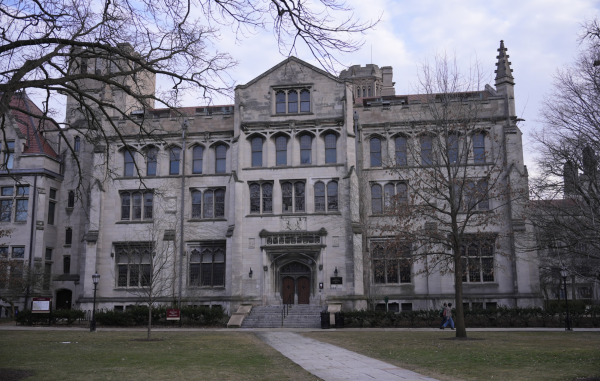
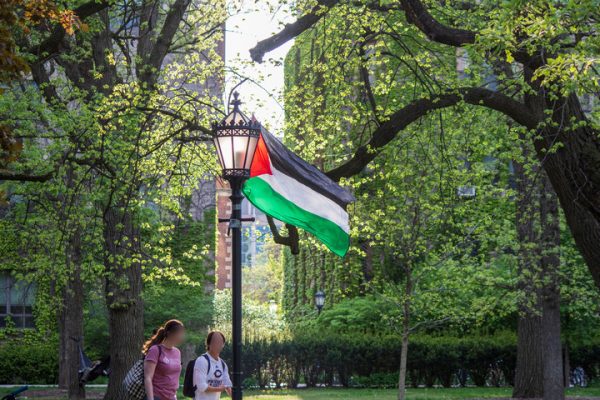
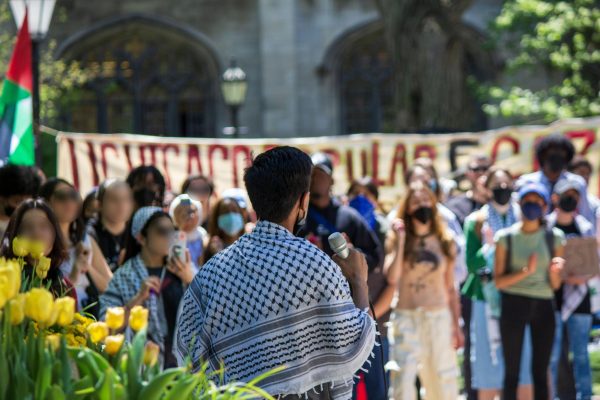
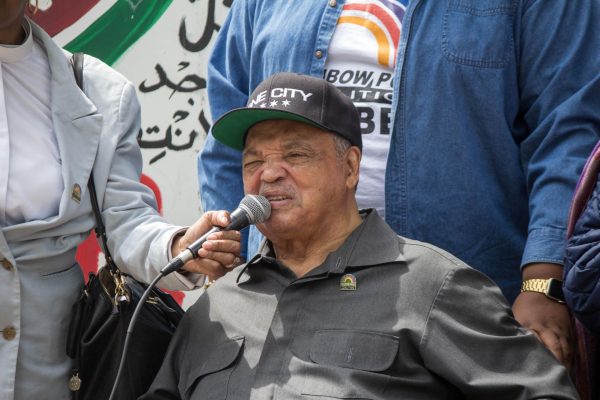
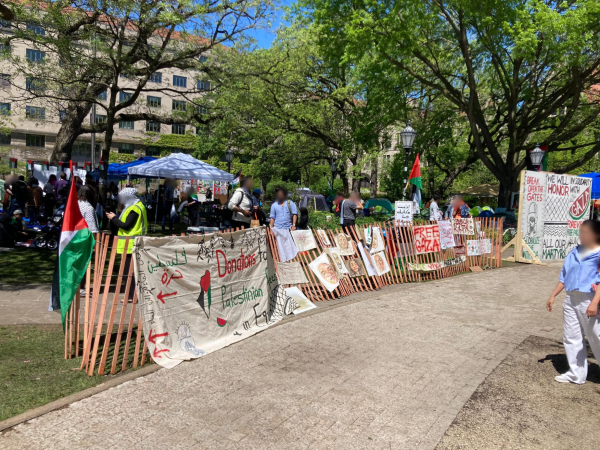
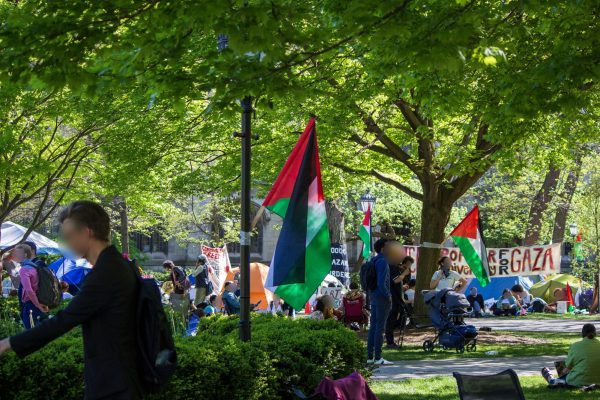
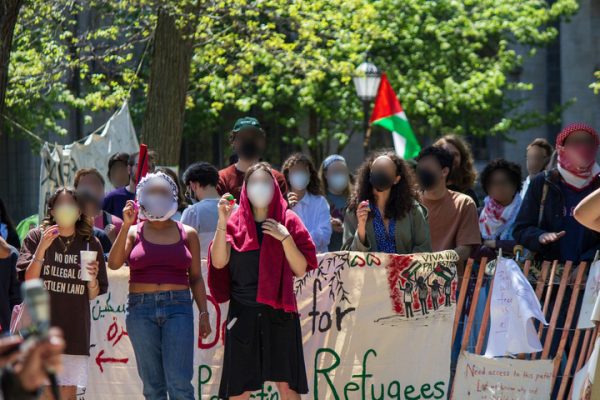
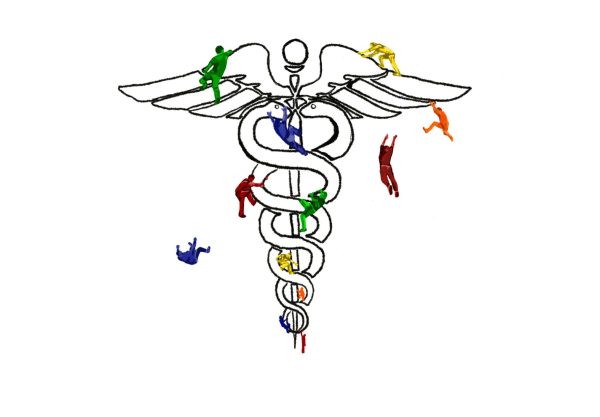
Bob Michaelson / Jan 16, 2023 at 1:51 pm
“I should much rather see reasonable agreement with the Arabs on the basis of living together in peace than the creation of a Jewish state. Apart from practical consideration, my awareness of the essential nature of Judaism resists the idea of a Jewish state with borders, an army, and a measure of temporal power no matter how modest.”
– Albert Einstein, April 1938
Gary Katz / Jan 13, 2023 at 10:40 pm
It’s hysterical that SJP accuses anyone of trying to “indoctrinate” students, since that is the exact mission of SJP. Having said that, allow me to translate a few of the article’s code words: “Resistance” means “terror.” “Colonial project” means Jewish refugees & immigrants migrating to their ancestral land – nothing “colonial” about it (European countries didn’t send their Jews there to do their bidding, as England did, to expand its empire, and don’t forget that over half of Israeli Jews originate from the Middle East, Africa & Asia). “Opposition to Elran’s course” means “Academic freedom for me, not for thee.” What’s the matter? Are you afraid students will be allowed to hear the other side’s position, and make up their own minds? I suspect that a little light shed on your “Palpaganda” will destroy its influence over the misinformed on your campus. Must be scary.
Berel Dov Lerner / Jan 12, 2023 at 6:19 am
Of course, this remarkably one-sided and tendentious narrative is predicated on the premise that the Jewish People lacks rights of political self-determination and self-defense and that the conflict must be ultimately be ended through the genocide or ethnic cleansing of 7 million Israeli Jews (“From the river to the sea Pslestine will be free” – of Jews).
States Don't Have "Rights to Exist" / Jan 14, 2023 at 5:17 pm
“The jewish people” have rights of political self-determination and self-defense in palestine just as much as manifest destiny granted american settlers the right to political self-determination and self-defense on native lands – that is to say, not at all. But to say that freeing palestine from the river to the sea means the “genocide or ethnic cleansing of 7 million israeli jews” is a great example of what one might call a “remarkably one-sided and tendentious narrative.”
Israel is a settler colony whose state structure is explicitly premised upon Jewish supremacy and the ethnic cleansing and erasure of Palestinians. In its current form, as acknowledged by all reputable international rights organizations, Israel has the characteristics of an apartheid state. “From the river to the sea Palestine will be free” means the dismantlement of Israel as a “jewish state” – this means the end of institutionalized jewish supremacy, the right of return for palestinian refugees, and return of sovereignty over settled lands to indigenous palestinians. The most likely and ideal form of the state after decolonization is a unitary democratic state encompassing israeli settlers and palestinians with equal rights, and reparations for palestinians.
Berel Dov Lerner / Jan 29, 2023 at 6:46 am
Thank you for making your position crystal clear. Well, it seems you are happy to see the Jewish People disappear from the face of the earth, so I won’t bring up their group rights. However: In effect, your plan is to take millions of grandchildren of Arab people who fled a war in the 1940s, who have (remarkably!) been denied rights of citizenship in the Arab countries in which they and their parents were born, who have been taught from birth that Jews are the problem and violence is the solution, and air-drop them into the only non-failed state in the region, a country containing the largest Jewish population in the world. So, instead of making the normal demand that people who are third generation immigrants should be allowed full rights in the lands of their births, you want to destroy a functioning country and create yet another locus of full-scale ethnic/religious civil war in the Middle East. Do you own stock in a body-bag manufacturer? Is that why you insist on creating theconditions for a horrible war?